Answer
To better help to utilize the spectrum Access Classes have been added. This better defines how specific devices operate in specific environments.
There are currently 4 Access Classes in Wi-Fi 6E:
- Standard Power (Indoor/Outdoor)
- Low Power
- Client (Indoor/Outdoor)
- Very Low Power (Indoor/Outdoor)
Standard Power (Indoor/Outdoor)
- This is the only access class that supports Access Points to be used outdoors.
- Can also be used indoors as long as all the requirements are met.
- Has a max power of 36 dB EIRP.
- Access Points must be coordinated through an Automated Frequency Coordination (AFC) service to make sure that it does not interfere with other devices in the area.
- Limited to UNII-5 and UNII-7 bands.
- Not used in all countries/regions. Please check the requirements of your specific country/region for more details.
Low Power (Indoor)
- Also referred to as LPI.
- Max Power is expressed as Power Spectral Density (PSD)
- PSD is 5 dBm/MHz. This means the power is higher as the channel gets wider. In general PSD is:
- 20 MHz wide channel - 18 dBm EIRP
- 40 MHz wide channel - 21 dBm EIRP
- 80 MHz wide channel - 24 dBm EIRP
- 160 MHz wide channel - 27 dBm EIRP
- Can operate in UNII-5, UNII-6, UNII-7 and UNII-8 bands but only indoors.
- There are certain device restrictions in place to make sure that devices are only used indoors:
- Cannot use a removable antenna. It must be integrated to the device.
- Devices cannot have a weatherized enclosure.
- Devices must be line powered and cannot use a battery.
Very Low Power (Indoor/Outdoor)
- Also known as VLP.
- Can operate in UNII-5, UNII-6, UNII-7 and UNII-8 bands either indoors or outdoors.
- Designed for mobile devices.
- Power Spectral Density limit is -8 dBm/MHz.
Clients (Indoor/Outdoor)
- Can operate in UNII-5, UNII-6, UNII-7 and UNII-8 bands either indoors or outdoors.
- Power must be 6 dB lower than the max EIRP of the Access Point it is associated to.
 Laird Connectivity is now Ezurio
Laird Connectivity is now Ezurio/filters:background_color(white)/2024-10/Sona%20IF573%20-%20Family.png)